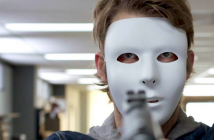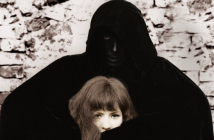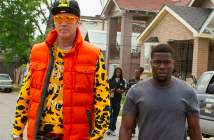The Connection (2014)
Cast: Jean Dujardin, Gilles Lellouche, Céline Sallette
Director: Cédric Jimenez
Country: France | Belgium
Genre: Action | Crime | Thriller
Official Site: Here
Editor’s Note: The Connection opens in select theaters May 15.
Let’s get the first question you are undoubtedly having out of the way. No, The Connection is not a French remake of The French Connection. In actuality, the title is a bit misleading. Outside of the time period and the titular heroine connection, these are two completely separate stories. There is no need to go and rewatch The French Connection to get The Connection (you should rewatch it though because it is a dirty, exciting, 70s era crime-solving action cinematic gem). Ultimately, The Connection is extremely different, in style, substance, and grace.
Jimenez establishes his world as one that is far more polished and smooth, like a glass of bubbly Champagne compared to The French Connection’s rougher tall boy. This is no New York City, this is the class and style of France.
That is not to say that The Connection is afraid to offer slight nods to its successor. Like The French Connection, The Connection drops you right into this world of tense and pervasive crime. Director-co-writer Cédric Jimenez is wonderfully skilled at composing individual segments and the film’s opening is perhaps the best example of this. With no dialogue or setup, the camera glides around weaving between the cars forever tied to a spry motorcycle. It is a much more mobile homage to Friedkin’s opening, trading in foot travel for wheels. Like its predecessor, it tells the story and establishes this world confidently and stylishly. Jimenez establishes his world as one that is far more polished and smooth, like a glass of bubbly Champagne compared to The French Connection’s rougher tall boy. This is no New York City, this is the class and style of France.
 The opening sequence has a kineticism that propels the first third of the film. Jimenez wastes little time on exposition or setup, plunging the viewer directly into this tale of drug lords and the police that try to stop them. This is a world of style and cool that oozes its way into every element of the film. Jean Dujardin’s Pierre Michel is perhaps the fullest embodiment of this aesthetic. Well-dressed, composed, and perpetually the smartest and coolest guy in the room. He deftly takes over his position in Organized Crime with a swagger that coaxes you to despise him before the charm has you melting in his hands. Dujardin imbues him with a quiet strength that subtly wins you over and manages to make the arduous police work seem somehow elegant. On first glance, his Michel is surprisingly similar to Gilles Lellouche’s Zampa. They are two heads of the same coin. Forever moralistically divided, but driven by the same quest for greatness.
The opening sequence has a kineticism that propels the first third of the film. Jimenez wastes little time on exposition or setup, plunging the viewer directly into this tale of drug lords and the police that try to stop them. This is a world of style and cool that oozes its way into every element of the film. Jean Dujardin’s Pierre Michel is perhaps the fullest embodiment of this aesthetic. Well-dressed, composed, and perpetually the smartest and coolest guy in the room. He deftly takes over his position in Organized Crime with a swagger that coaxes you to despise him before the charm has you melting in his hands. Dujardin imbues him with a quiet strength that subtly wins you over and manages to make the arduous police work seem somehow elegant. On first glance, his Michel is surprisingly similar to Gilles Lellouche’s Zampa. They are two heads of the same coin. Forever moralistically divided, but driven by the same quest for greatness.
As these two forces remain separate, in the film’s first third, it glides along. However, as the sides begin to interact and the cat-and-mouse game between Michel and Zampa takes center stage, it loses steam. What was once sleek and captivating gets bogged down in procedure and roadblocks. The pacing comes to a near halt and Jimenez’s mishandling makes this middle section a bit of an arduous slog. The characters even lose some of their charm and you find yourself not really caring who wins, just that something of substance may develop. The camera seems to lose interest as well, slowing with shots becoming much more staid and unexceptional.
The many montages, with their rock soundtrack and swinging camera movements, are positively Scorsesian, as if lifted entirely from Goodfellas or Casino.
Style is a large component of what makes The Connection so worthwhile. It reveals a different side to the dirtier New York 70s that the era is often known for. The surfaces are shinier, the suits fit better, but it still feels like the 70s cinematically. At times, Jimenez’s homage to the era, and other gangster greats, begins to make the film feel like nothing but. The many montages, with their rock soundtrack and swinging camera movements, are positively Scorsesian, as if lifted entirely from Goodfellas or Casino. Its grand scale and visual palette are reminiscent of Jean-François Richet’s Mesrine. Like that two-parter, the sheer size and time that must be invested in The Connection is taxing. The tale grows heavy and the audience weary, losing interest as every moment ticks by. Jimenez struggles to find the necessary reasoning and no matter how cool the film ends up looking, the story’s routine construction and slavery to procedure make it lesser.
Jimenez wakes up a bit about two-thirds through the movie and returns to the form that he had established early on. It becomes more captivating and the electricity kicks on the back of the viewer’s chair to wake them up. The Connection is gifted with strong performances on either side of the moral divide with Jean Dujardin and Gilles Lellouche understanding the inherent similarities of their characters. Both are cunning, ruthless, and effortlessly charming. But Dujardin is perhaps the more skilled, delivering a subtle nuance and quiet unraveling that is impressive in its restraint. Director Cédric Jimenez shows 70s France as this sleek and stylish world where the cops are just as cool as the criminals. For long stretches, The Connection is as charming and attractive as its characters. If not for a leaden middle section, it would be a gripping crime drama that manages to both pay homage to 70s cinema and feel endlessly modern. As it stands, it is a fantastic looking film that has trouble getting over some basic story weaknesses.
For long stretches The Connection is as charming and attractive as its characters. If not for a leaden middle section, it would be a gripping crime drama that manages to both pay homage to 70s cinema and feel endlessly modern. As it stands, it is a fantastic looking film that has trouble getting over some basic story weaknesses.




Pingback: Let's Explore Diabetes with Owls - David Sedaris free downloads()